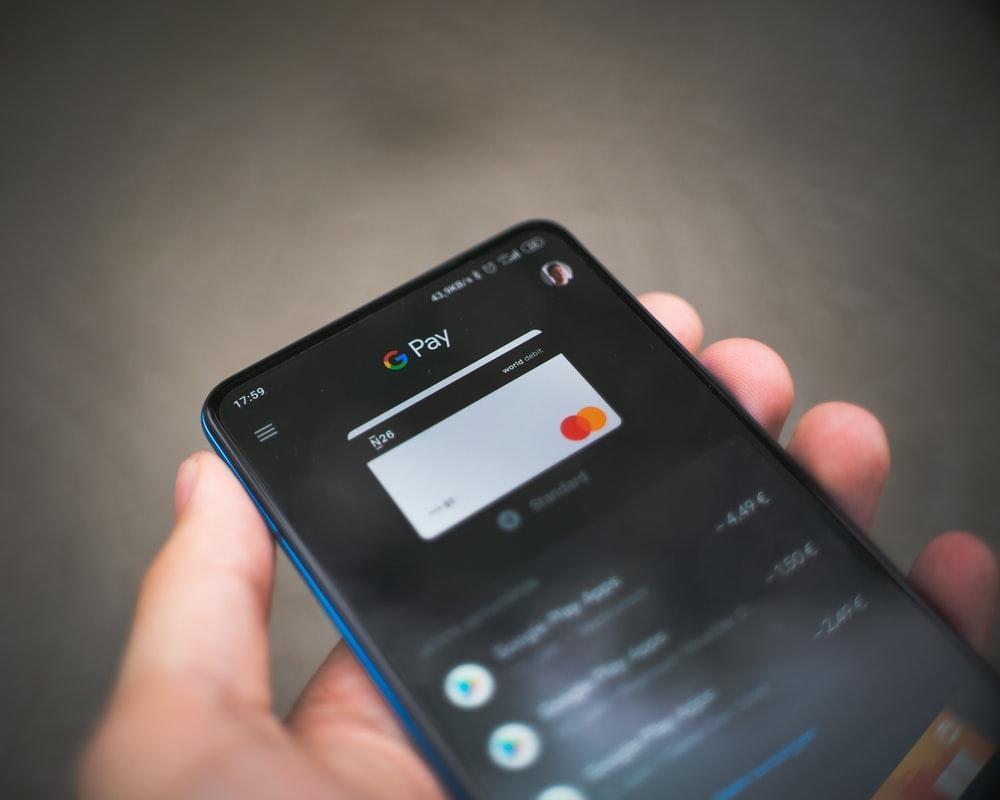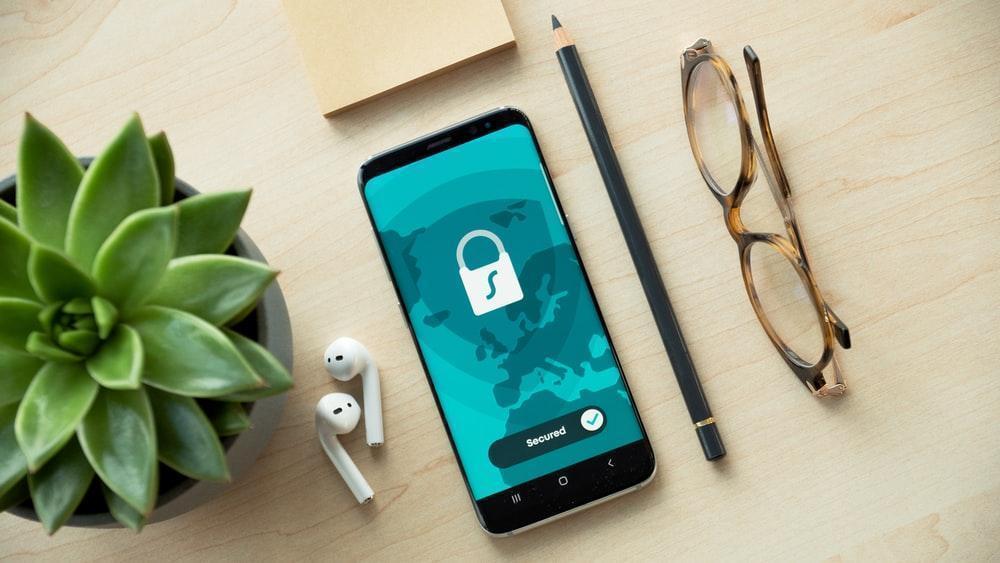So, what is PCI DSS? It stands for Payment Card Industry Data Security Standard. Back in 2004, it was designed by the Payment Card..
PCI DSS is a security standard that was designed to protect credit/debit card transactions. Let’s see why your company needs it and which benefits it will bring.
PCI DSS Certificate — No Fraud Is Allowed
Typically, the online payment algorithm looks like this:
So, what is PCI DSS? It stands for Payment Card Industry Data Security Standard. Back in 2004, it was designed by the Payment Card Industry Security Standards Council and then was employed by 5 biggest payment transaction companies — MasterCard, American Express, Visa, JCB International and Discover Financial Services
This standard was designed to ensure that all companies that accept, process, store or transmit the credit card information maintain a secure environment to make all card operations safe, minimizing the possible risks of fraud, and so on. While PCI DSS is not an obligation enforced by federal law, multiple state regulations are actively demanding compliance. A similar situation appears in other countries worldwide.
If your ecommerce business is dealing with credit or debit card processing, this means that it works closely with sensitive data that should be protected. Thus, the PCI DSS requirements apply in your case, and you have the responsibility to ensure that the transactions are carried out in a secure way. After all, every cardholder should feel safe when they make a purchase via the payment system you offer.
The PCI DSS meaning is that merchants and customers are protected from fraud. This compliance serves to safeguard against such typical threats as:
- Money theft.
- False chargebacks.
- Sensitive data getting stolen from both merchants/shoppers, etc.
These are extremely serious factors to consider. For instance, in 2016 it was estimated that chargeback frauds alone cost companies $2.40 for every single dollar they have to reimburse.
So, this certificate is basically one of the pillars that carry every successful payment network, both online or physical. But what does PCI DSS certification exactly include? Let’s investigate.

How to Join the Compliance Alliance?
You may ask, what are the requirements set by this standard? And how to become PCI DSS- compliant? Universally, there are 12 key principles to follow. Let’s take a quick look:
- Payment security can be achieved with a secure network only. So, the cardholder data must be protected with a firewall.
- Your company cannot rely upon basic and default safety parameters, which apply to payment cashier systems, and so on. Plus, no simple or predictable passwords are allowed.
- The cardholder’s personal data must be strongly protected, according to the strict PCI DSS rules.
- Encryption of cardholder data is the key when it comes to protecting the sensitive information across any given public network (WiFi).
- All anti-virus databases that you employ must be regularly updated.
- Employ only secure and trustworthy apps and utilities.
- Access to the cardholder’s data must be limited.
- Every online customer should have a unique ID.
- Physical access to the client’s data must also be limited.
- Access to the client’s data must be closely monitored along with the usage of the network resources.
- Security system must be kept in check and tested for vulnerabilities on a regular basis.
- Your company’s policy and card payment network must be based on the information security principles.
Now, let’s see which security level your network should be compliant with.
Validating PCI DSS Compliance
There are three main ways of estimating to which extent your business is compliant with PCI DSS:
- PCI Compliance Self-Assessment Questionnaire (SAQ). This is a survey with yes-no questions that each company can perform quarterly and report the results to the relevant organizations.
- PCI Compliance Qualified Security Assessors (QSA). QSAs are people or companies certified to run PCI DSS security assessments. Hiring a QSA is not mandatory to complete the SAQ, but if you select this option, try to find an assessor that has a clear understanding of your business needs.
- PCI Approved Scanning Vendor (ASV). ASVs scan the business’s externally-facing credit card processing network and submit a report to the acquiring bank. This procedure, if executed successfully, proves a merchant’s PCI DSS compliance.
Below, we will talk more about which merchants are eligible to conduct self-assessment procedures and which have no other choice but to submit an application to undergo a Payment Card Industry scan by ASVs.
Essential Information on PCI DSS Compliance Levels
It is generally accepted that there are 4 levels of PCI DSS security compliance. Here’s a short review of each one.
-
Level 1
This level is required for those entities, who process at least 6 million credit/debit card transactions each year or more.
Besides, this level requires that a business venue hosts an internal audit annually — this can be done with the help of an authorized PCI DSS auditor only. Plus, a company must submit a PCI scan — a scan for vulnerabilities — via an ASV (Approved Scanning Vendor).
-
Level 2
This requirement is for the entities who process from 1 to 6 million card transactions each year. It is also mandatory for them to conduct an annual self-assessment with the help of a SAQ — Self-Assessment Questionnaire. In some cases, a company has to submit the PCI scan too.
-
Level 3
This level applies to all entities who hold from 20 thousand to 1 million card transactions each year. It also implies that SAQ is necessary. And optionally, the PCI Scan of your payment network might be required as well.
-
Level 4
Finally, companies that have up to 20 thousand yearly transactions can qualify for this level. SAQ is mandatory, PCI scanning may be required.
As you can see, even a small company can adhere to the PCI DSS standards, which automatically improves its security ecosystem. At the same time, reality is that it costs to invest in building and maintaining the infrastructure that is necessary to make your enterprise fully PCI DSS-compliant. It includes hiring professionals, expanding the staff, licensing software, going through an audit, etc.
But wait: what do you win exactly from introducing these seemingly intricate security algorithms to your business?
| Compliance Level | Number of Transactions | Requirements |
|---|---|---|
| Level 1 | 6 million or more |
|
| Level 2 | 1 – 6 million |
|
| Level 3 | 20,000 – 1 million |
|
| Level 4 | Fewer than 20,000 |
|

Benefits
The literal PCI DSS definition includes a bunch of technical procedures. But metaphorically speaking, it also implies protecting your clientele and winning their trust.
Here are some of the benefits that you get from employing PCI DSS requirement set:
-
Reputation
No commerce, including its digital iteration, can exist without trust. The more you invest in protecting your customers, the more you contribute to building up your reputation. The modern merchant definition surely implies taking care of your clientele among all else.
-
Global access
If your business meets global standards, it has a bigger chance to enter the global market successfully. For example, the standard is widely used in Europe.
And though it has no legal force at the moment, it’s possible that PCI DSS requirement list may become obligatory for all e-merchants in the future.
-
Prevent attacks
Online attacks may produce disastrous consequences: stolen money, hijacked accounts, damaged reputation and even lawsuits, as the Scripps Health incident showed us when the database with personal details of 150,000 patients was stolen, which resulted in a collective lawsuit against the company.
-
Even more security
Once your company works in unison with PCI DSS, it’ll be much easier to introduce other security standards: ISO, GDPR, and others.
-
Smoother workflow
A secure payment gateway will allow every cardholder you deal with to pay instantly with no extra hassle or bustle.

How to Maintain PCI DSS Compliance?
Maintaining compliance with PCI DSS goes far beyond staying tuned for the new requirements. There are a number of procedures that a merchant can follow to ensure that the PCI standards compliance status is valid, such as:
- Performing an annual formal risk assessment.
- Completing the SAQ every year.
- Monitoring for internal threats, malware, and data security breaches.
- Doing a quarterly internal vulnerability scan.
- Carrying out a quarterly external vulnerability scan via an ASV.
- Formal periodic training of employees providing information regarding the functioning of PCI standards and data security.
- Tracking file activity and cardholder behavior.
- Annual training for non-IT personnel of the organization on the basics of data security standards.
These actions are helpful to effectively monitor PCI DSS compliance and minimize the risks of data breaches and fines.
PCI DSS Violation Consequences
Should you really focus on following the requirement list provided by PCI? As indicated above, following the PCI DSS is mandatory, although the applicability of its requirements varies depending on the entity. This standard establishes the fundamental conditions in terms of security to protect transactions with payment card data, so merchants that decide to ignore PCI DSS may face severe consequences. For instance, they may encounter limitations to process transactions introduced by payment service providers, acquiring banks, or payment gateways.
Besides, should there be an occurrence of a security incident that affects credit card data, when the entity doesn’t comply with the standard, it must assume all the derived expenses, including:
- Fees for lawsuits and compensation to those affected.
- Costs of fraud with transactions made with the affected card.
- Renewal costs of the affected payment card.
- Fines by payment brands, based on the amount of payment card data involved, ranging from $5,000 to $100,000 per month until the business fulfills all the requirements.
- Legal fines for affecting personal cardholder data, such as those enforced by GDPR.
- Forensic investigation costs, conducted by a professional PCI Forensic Investigator (PFI).
- Post-incident PCI DSS control implementation costs.
- Costs derived from ruined reputation.
These charges are enough to make even a large-scale company bankrupt. Thus, if your business is still not PCI-compliant, it is advisable to update your security policies and submit a certification application as soon as possible.
Integration: How Long & How Much?
And finally: how do you apply to be PCI DSS-certified? Read ahead for all the information! Certification process requires companies of Level 2, 3 and 4 to fill a Self-Assessment Questionnaire.
Its number of questions may vary: sometimes there can be as many as 300+. And then you will need to prepare the Attestation of Compliance (AOC). If your entity is Level one, then a Qualified Security Assessor will need to participate too.
But before you can submit all these forms and docs, you’ll need to invest a good amount of time and money into “fine-tuning” your company.
There’s no definite answer on how much time it’ll take or how big your costs will be to attain the desirable compliance. It may stretch from $500 to $70,000 annually, depending on the size of your enterprise.
It includes buying antivirus software, employing encryption technologies, paying for a security audit, and so on.
But there’s a shortcut. Instead of doing all this, you can use an out-of-box solution that will make your company compliant instantly — the PCI DSS-compliant gateway.
Once it’s connected to your venue’s ecosystem, you can:
- Keep track of all money transactions.
- Advertise your business as PCI DSS-compliant.
- Accept payments right away: no need to lose time.
- Save money: extra costs like paying for boosting your security system can be cut.
As you can see, the lengthy procedure can be shortened. Lose no time and solve the issue of PCI DSS compliance with one elegant move. Submit an application to connect the PCI DSS gateway and your company will enter the next level of security.
How Can Payneteasy Contribute to Your PCI DSS Compliance?
When you become a client of Payneteasy, you can rest assured that all the services you receive from us match the highest data security standards. Hence, when opting for our white-label payment gateway solution, you are receiving a completely ready-to-use PCI DSS system that spares you the need to invest more in product development and additional security features.
Safeguard the cardholder data and your payment network with our custom solutions! For any additional information, don’t hesitate to contact us, and we will get back to you within one workday.
